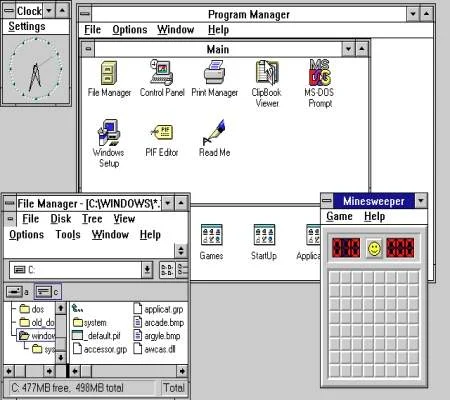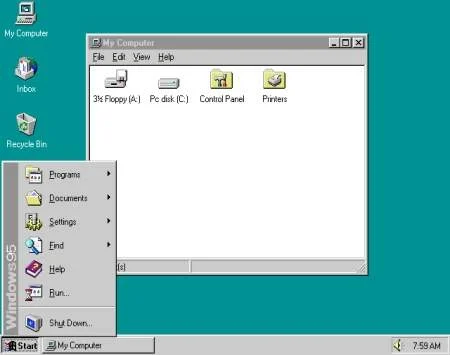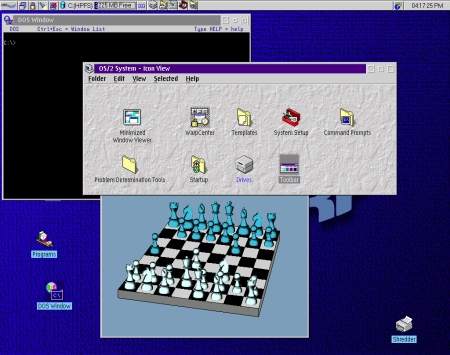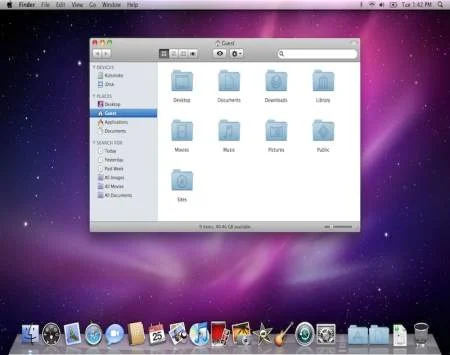Microsoft has launched yet another iteration of its infamous Windows operating system. Fortunately, I have chosen to opt out of the Microsoft universe and am well on my way to becoming a loyal disciple of the venerable Saint Stephen Jobs.
Let me explain.
I first became acquainted with Windows in 1992 when Microsoft proudly introduced version 3.1. Although the GUI was somewhat impressive, I was perfectly content to stick with my beloved DOS prompt for everything except word processing.

Indeed, serious PC gamers had little interest in a constrained Windows environment, which hogged much-needed memory resources and crippled barely tolerable FPS rates.
Similarly, SysOps of multi-node Renegade or Wildcat bulletin board systems (BBS) typically opted for DOS-based multitasking applications such as DesqView, or connected multiple computers via a LAN.
But the golden age of PC computing came to an abrupt end with the introduction of Windows 95. The new OS replaced the old, yet dignified DOS prompt with a less than intuitive and unstable GUI.

Like many others, I desperately sought an alternative. I was quite adamant in believing that Windows 95 would never defile my 486 DX50. Luckily, I eventually stumbled upon a solution after many sleepless nights trawling the web on my dial-up shell account.
OS/2 Warp.
I immediately ordered a used copy of IBM’s now-defunct OS from a Usenet group.
Installation, after formatting my hard drive, went flawlessly. I was quite pleased with the GUI, which looked and felt immeasurably more stable than the bloatware passing itself off as Win95. I then proceeded to download a web browser and purchased a copy of DeScribe for word processing.

Yet, all good things must come to an end.
Indeed, I had somehow managed to overlook the fact that OS/2 Warp was not supported by any major game studio or mainstream entertainment developers. Sadly, everyone had jumped on the fast-moving Windows 95 bandwagon.
I was devastated, but realized that I had little choice but to adopt the howling beast known as Windows 95 if I wanted to play the next-generation of games.
With a heavy heart and lighter wallet, I eventually purchased a new Pentium-based system that was capable of running just about any bloatware that Microsoft churned out.
I had, albeit unwillingly, returned to the Microsoft universe. It was tolerable, but only because I was distracted by a truly exceptional generation of games such as Quake (OpenGL) and Unreal.

My Windows experience was also much improved by a virtual smorgasbord of Open Source Software – such as Open Office – which offered a realistic alternative to Microsoft’s creeping feature syndrome.
I was, admittedly, a willing captive and so dutifully purchased a number of subsequent Windows releases, including 98, 2000 and XP.
Unsurprisingly, Vista was the tipping point that triggered a mind-altering epiphany. Like many others, I began to question the future of Windows as an OS of choice and considered installing various flavors of Linux. To be sure, I was an old fan of Unix and had whittled away countless hours shell scripting and staring at glowing green prompts.

However, I was less than thrilled with the prospect of (inevitably) investing endless blocks of time configuring the OS to fit my specifications.
As such, Mac OS X began to seem like an appealing choice. Of course, I did, and still do have reservations about the Cult of Apple. For example, I dislike Club Cupertino’s smug attitude and am not overly thrilled by the high prices that it charges for Mac hardware.
But I recently decided to put aside my doubts and shelled out the big bucks for a higher-end Mac Book Pro.

I must confess that I was unable to stomach the thought of dealing with yet another iteration of Windows – despite the fact that 7 is light years ahead of Vista and XP. Yes, the system scales well, is ostensibly quite stable and will probably help to kickstart a struggling hardware market.
But I am certainly not going to celebrate its debut. Windows 7 has come too late for this nostalgic tech journalist who is perfectly satisfied with the quiet stability of a graceful Snow Leopard.






